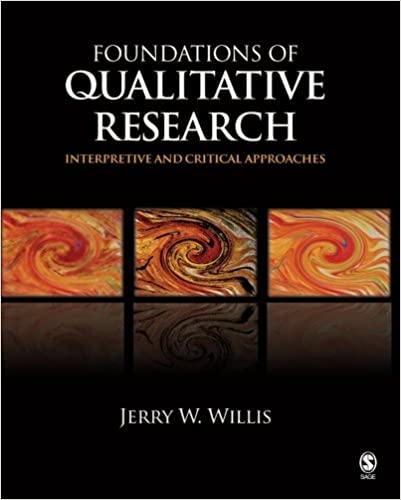Question
Personality disorders used to be classified as completely differently than other disorders in previous diagnostic schemes (e.g. DSM-IV had a completely different method for diagnosing
Personality disorders used to be classified as completely differently than other disorders in previous diagnostic schemes (e.g. DSM-IV had a completely different method for diagnosing personality disorders than DSM-V and DSM-V-TR. Although the updated diagnostic schemes are viewed as being more accurate and better aligned with research findings, it may be helpful to recognize the qualitative differences between personality disorders and many of the other disorders discussed in the class.
This discussion seeks to help develop a better understanding of why personality disorders have historically been treated differently than other disorders and apply this understanding to better recognize the challenges in diagnosing and treating these disorders.
in 350words or more; Though some disorders may be time-limited (e.g. Major Depressive Disorder typically occurs in distinct episodes lasting months), other disorders are more chronic. Personality Disorders, in particular, are characterized by long-lasted patterns of inflexible, maladaptive behavioral and emotional responses. How might having experienced the symptoms of the disorder for most, if not all, of your life affect your recognition of the symptoms and seeking treatment for the symptoms? How might the long-lasting nature of personality disorders affect the success of treatment? Explain your answer. Do you think the long-lasting nature of personality disorders impacts friends and family of the disorder? Why or why not?
Step by Step Solution
There are 3 Steps involved in it
Step: 1

Get Instant Access to Expert-Tailored Solutions
See step-by-step solutions with expert insights and AI powered tools for academic success
Step: 2

Step: 3

Ace Your Homework with AI
Get the answers you need in no time with our AI-driven, step-by-step assistance
Get Started


